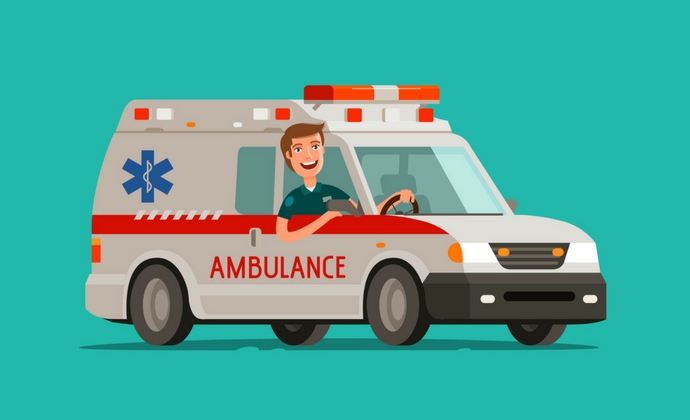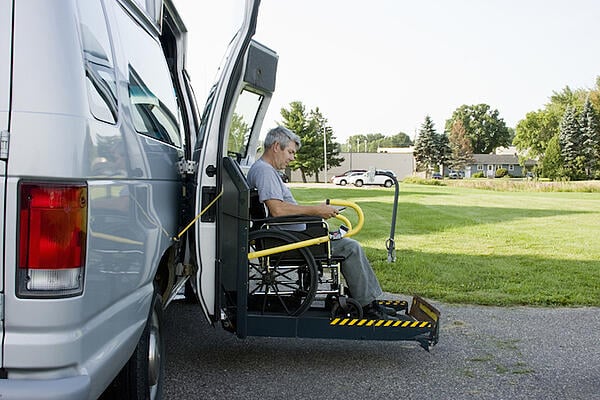Streamlined Medical Transportation: Making Healthcare Accessible for All
Streamlined Medical Transportation: Making Healthcare Accessible for All
Blog Article
Affordable and Accessible Medical Transportation Options for every single Situation
In the realm of medical care, the ability to access clinical solutions is critical, yet the difficulty of economical and accessible transportation can typically impede individuals from getting essential treatment. While some might have the ways to protect private transportation, many face barriers that make it difficult to get to medical appointments or facilities. Nevertheless, the landscape of medical transportation options is evolving, providing a variety of services customized to various needs and situations. By checking out specialized medical transport services, neighborhood transportation programs, ride-sharing and taxi services, non-emergency clinical transport, in addition to public transit and paratransit options, people can locate methods that accommodate their certain demands and ensure they receive the treatment they require.
Specialized Medical Transportation Services
Specialized clinical transport services play a crucial function in making certain safe and reliable transportation for people calling for specialized care throughout transportation. These services cater to clients with special clinical demands, such as those requiring constant surveillance, customized equipment, or clinical interventions during transportation. By using specially complete cars and trained clinical personnel, specialized clinical transport solutions make certain that individuals receive the needed care while being transported in between health care facilities, houses, or various other places.
One secret aspect of customized clinical transportation services is the emphasis on person comfort and safety and security. Medical transportation groups are trained to take care of different clinical problems and emergency situations that may develop throughout transit, offering a higher level of treatment than typical transportation choices. In addition, these solutions usually offer door-to-door help, reducing the anxiety and pain that clients might experience during transfers.
Area Transport Programs
Having actually resolved the crucial function of customized clinical transportation services in making certain safe and effective transport for individuals with unique clinical requirements, the focus currently changes to analyzing Community Transportation Programs - medical transportation. These programs play a vital function in giving cost effective and easily accessible transportation options for the general populace, including elders, individuals with disabilities, and low-income families that may deal with challenges in accessing traditional transport alternatives
Area Transport Programs include a range of solutions such as fixed-route buses, paratransit solutions, volunteer vehicle driver programs, and ridesharing efforts. These programs are typically subsidized by city governments, charitable companies, or private companies to ensure that people have trustworthy transportation choices to reach medical visits, supermarket, social activities, and other essential destinations.
Ride-Sharing and Taxi Providers

One of the vital benefits of ride-sharing and taxi solutions is their accessibility. These solutions run 24/7, enabling individuals to take a trip to clinical consultations, pharmacies, or medical facilities any time of the day. Additionally, ride-sharing and taxi solutions satisfy individuals with mobility difficulties by using wheelchair-accessible vehicles upon request.
Furthermore, ride-sharing and taxi services can be especially valuable for individuals living in locations with minimal public transportation options. By bridging the void in between home and medical care centers, these solutions play an important function in making sure that every person has access to necessary clinical solutions.
Non-Emergency Medical Transport

Non-Emergency my latest blog post Medical Transport companies commonly employ go to this site skilled employees that are experienced in helping people with differing clinical needs. By offering door-to-door service, Non-Emergency Medical Transport improves the overall accessibility of healthcare for individuals that might otherwise have a hard time to attend vital clinical visits.
Public Transportation and Paratransit Options
Public transportation and paratransit alternatives use vital transportation services for individuals with varying wheelchair demands, making sure access to vital locations such as medical centers and consultations. Public transportation systems, consisting of buses, trains, and metros, provide an economical and extensively readily available setting of transportation for people seeking to get to clinical consultations. These solutions are especially helpful for those who might not have access to private automobiles or call for assistance as a result of wheelchair difficulties.
Paratransit services provide specifically to people with handicaps that are not able to make use of typical mass transit. These solutions use door-to-door transport, accommodating people with mobility devices, walkers, or various other mobility aids. Paratransit vehicles are furnished with functions such as mobility device ramps and securement systems to guarantee the risk-free and comfy transportation of travelers with differing movement needs.

Conclusion

Report this page